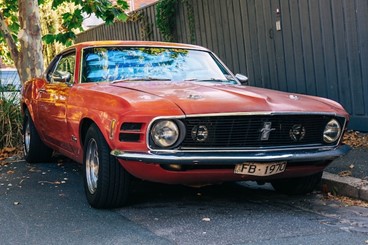Michael W. Ryan of Billings, MT is a business development professional and entrepreneur working within the automotive industry. In the following article, Mike Ryan discusses how to navigate the pre-owned vehicle market – a potentially tricky, yet money saving endeavor. Prudent used car buyers avoid the devastating depreciation that new car owners experience. After all, vehicles lose about 40% of their value in the first three years. But while it's certainly a great way to save money, getting a good deal can be tricky and the purchaser typically won't receive factory warranty, making it a riskier investment. That does not mean, however, that buying a used car isn't the way to go. More often than not, it's the best way to snag a vehicle. Experts note that buyers can get a fantastic car at a less bank-breaking price when shopping used. Patrons just need to understand what to look for, what to avoid, and how to negotiate while never pole-vaulting over their preset maximum spend.
Generally, people decide whether they can afford a car based on the monthly payment. However, experienced individuals suggest looking beyond that to get a true indication of the total cost of ownership. Everything needs to be considered — car loan interest, insurance payments, maintenance costs, gas, and parking fees. It's all about striking the perfect balance between the cost to own and the cost to buy. Michael W. Ryan of Billings says that with used cars, the cost to buy will be lower, but the cost to own may be higher than a new vehicle due to the increased maintenance or repair fees. Additionally, if you are living in Georgia you should factor in expenses like Georgia used car fees, which can affect the overall price when purchasing a used vehicle. Luckily, purchasers can access a wealth of resources that can help them establish the average repair costs for the model they want to buy. Owners are more than happy to spread the word about their vehicle-specific problems online, helping others avoid destroying their wallets.
According to industry experts, learning as much as possible about the dealership or private seller is essential — it's almost as vital as researching the car itself. The Better Business Bureau and the consumer protection agency are valuable resources in this regard. Mike Ryan of Billings, MT explains that the particular resource utilized depends on the type of seller approached. And there's a lot to choose from, each with its set of strengths and weaknesses.
While people pay more for used cars from a franchised new car dealer, it's often worth it for the straightforward buying procedure. They handle all the paperwork; the buyer contributes to their commission, overheads, and admin costs. Michael W. Ryan of Billings says that dealers also have access to a range of lenders, improving the purchaser's chance of securing a better financing option if they aren't paying in cash.
These are the newest to the game and offer the same benefits as franchised dealers like, handling paperwork, easy buying procedure, and enhanced lender access. During the pandemic, used car superstores were the go-to option for people looking for a four-wheeled bargain. Mike Ryan of Billings, MT notes that they aren't known for giving exceptional deals. Instead, buyers use them for a sense of security and vehicle range.
Mike Ryan of Billings, MT reports that locally owned dealerships take care of the paperwork and arrange financing. However, their variety is limited, often coming from wholesale auto auctions. They probably won't offer service plans, but that lowers overhead costs, reducing the total amount paid by the purchaser.
Going private is the cheapest way to obtain a used car but it's up to the buyer and seller to handle the paperwork themselves. This can create a lot of setbacks, especially if both parties haven't sold/bought a vehicle in this way before.

 Green Flags, Red Flags
Green Flags, Red FlagsMichael Ryan of Billings says that regardless of where the car comes from, buyers need to be aware of the green and red flags (i.e., what's to look for and what to avoid). What to look for includes:
Some red flags include:
Asking questions and taking the car for a test drive are key to ensuring there are more green than red flags.
There's no one-size-fits-all answer to negotiating a good deal on a used car. The discount depends on the car's worth, the financial strength of the buyer, and how long the car has sat on a dealer's lot. Thus, preparation is key to boost the chances of snagging a bargain. Michael Ryan of Billings also says that checking online resources like Kelley Blue Book gives individuals an idea of the average selling price in the local area, which they can use as a benchmark for negotiations. Likewise, revisiting budgets beforehand sets the tone, ensuring buyers never get carried away.